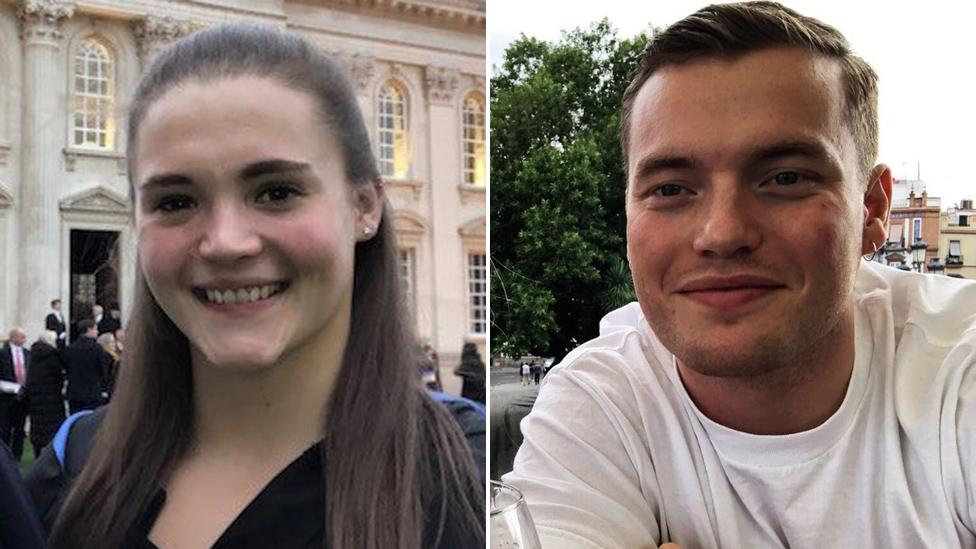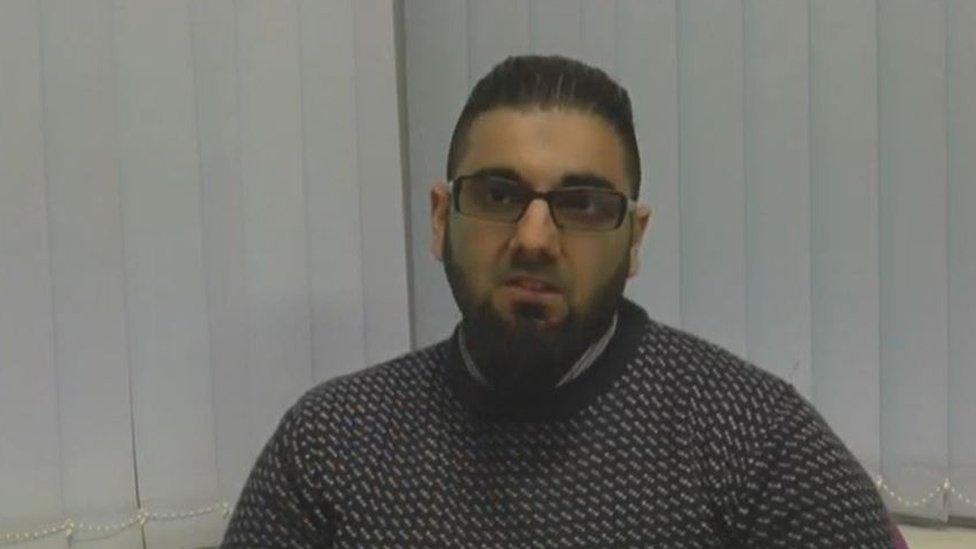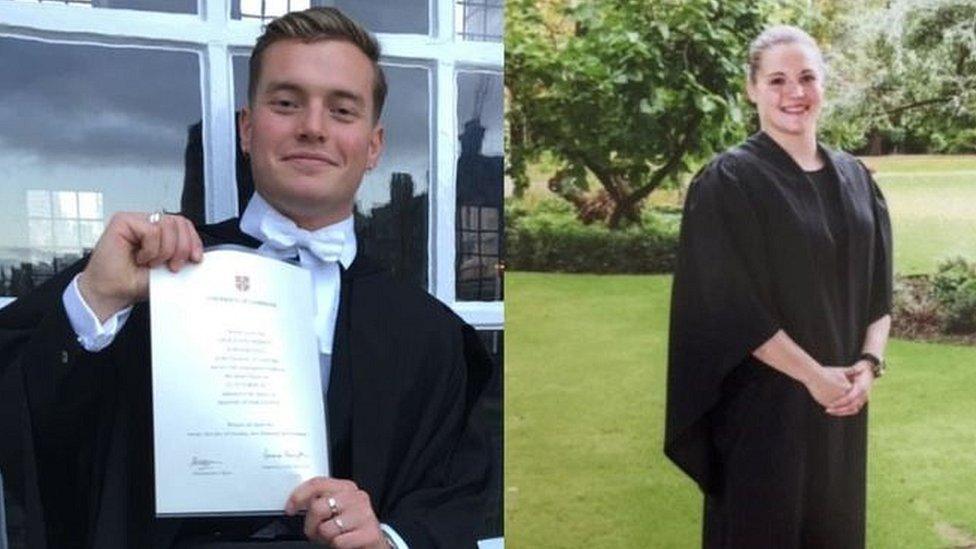Fishmongers' Hall: Usman Khan 'influential terrorist prisoner'
- Published

Saskia Jones, 23, and Jack Merritt, 25, were killed by Usman Khan during a conference on rehabilitating offenders
A convicted terrorist who killed two people had been one of the UK's highest risk inmates, an inquest heard.
Usman Khan, 28, killed Jack Merritt and Saskia Jones at Fishmongers' Hall in London Bridge on 29 November 2019.
Eight months earlier he had been released from prison, where he was viewed as an "influential" inmate who mixed with high-profile terrorists.
A panel tasked with managing Khan after his release did not discuss the risks of his London visit, the inquest heard.
During his eight years in prison Khan was considered to be among the 70 highest-risk prisoners in the entire country, jurors were told.
Khan associated with terrorists including Fusilier Lee Rigby's killer Michael Adebowale, and was involved with violent incidents and radicalisation of fellow inmates at seven prisons across England, the inquest heard.
'Told lies and ticked boxes'
At HMP Woodhill he was deemed to be a "Muslim enforcer" who headed up "a bullying gang".
Senior investigating officer Det Ch Insp Dan Brown gave evidence about Khan's life and long history of extremism in and out of prison, including:
January 2011: Khan suggested he had access to a weapon and would "do someone in the eye or neck" and wanted to die and go to paradise
March 2011: Khan and others were involved in an attack on another prisoner to shouts of "Allahu Akbar"
November 2011: Khan shouted during the two-minute silence for Armistice Day.
June 2012: Khan recited a poem including a reference to beheading a "kuffar", or non-believer
May 2013: A stockpile of chemicals was found in Khan's cell
November 2013: A Church of England chaplain was caught up in an assault by Khan on another prisoner. A razor blade was found in his cell later that day.

Khan recorded a video for Learning Together months before launching the attack
By March 2017, Khan was at HMP Whitemoor where he remained a high risk, Mr Brown said, and in June of the same year was regarded as an "influential" terrorist prisoner involved in "extremist bullying".
Evidence suggested he continued to harbour extremist attitudes and deliberately "told lies or ticked boxes to achieve progression", the detective said.
Intelligence gathered in October 2018 suggested he would "return to his old ways" following release, the court heard.
Jurors have also heard Khan engaged with Learning Together, the education project where Mr Merritt and Ms Jones worked, describing it as "kind of a family".
He launched his fatal attack at one of its rehabilitation conferences held at Fishmongers' Hall.
The inquest has heard Khan shaved off his body hair - an apparent preparation for an act of martyrdom - in a toilet cubicle at the venue before attacking fellow attendees.
He was chased on to London Bridge by several people, including a serving and former offender, and was then shot dead by police.
A multi-agency public protection arrangements (Mappa) panel tasked with managing Khan after his release had not discussed the risks his trip might pose, the court was told.
At a final meeting on 14 November 2019, jurors heard, the group mentioned arrangements for Khan to travel to London on 29 November.
However, Jonathan Hough QC, counsel for the coroner, said consideration of the trip referred to "logistics rather than risks".
The inquest hearing continues.
Related topics
- Published26 April 2021

- Published23 April 2021
